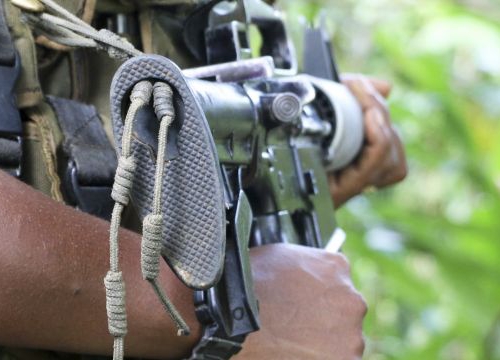Non-State Armed Groups and IHL
Event


ICRC
Side Event at the 33rd International Conference of the Red Cross and Red Crescent
Compliance with international humanitarian law (IHL) by non-State armed groups is a major challenge in today's armed conflicts. While it is accepted that NSAGs are bound by IHL, how they actually view and interpret their international obligations has remained insufficiently explored.
Considering this knowledge gap, Geneva Call and the Geneva Academy of International Humanitarian Law and Human Rights have embarked into a research project that aims to increase our understanding of NSAGs’ behaviours in conflict settings in order to strengthen respect for IHL.
This side event at the 33rd International Conference of the Red Cross and Red Crescent, co-organized by the Geneva Academy and Geneva Call, will offer the opportunity to present this research project, its rationale and some of its preliminary findings.
Moderator
- Verity Robson, Legal Counsellor, Permanent Mission of the United Kingdom to the United Nations and other International Organizations, Geneva
Panelists
- Annyssa Bellal, Senior Research Fellow and Strategic Adviser on IHL, Geneva Academy of International Humanitarian Law and Human Rights
- Pascal Bongard, Head of the Policy and Legal Unit, Geneva Call
- Fiona Terry, Head of the Centre for Operational Research and Experience (the CORE), International Committee of the Red Cross (ICRC)
- James Munn, Director of Humanitarian Policy and Representative in Geneva, Norwegian Refugee Council (NRC)
- Reka Dobri, Policy Officer, European Civil Protection and Humanitarian Aid Operations (ECHO)







